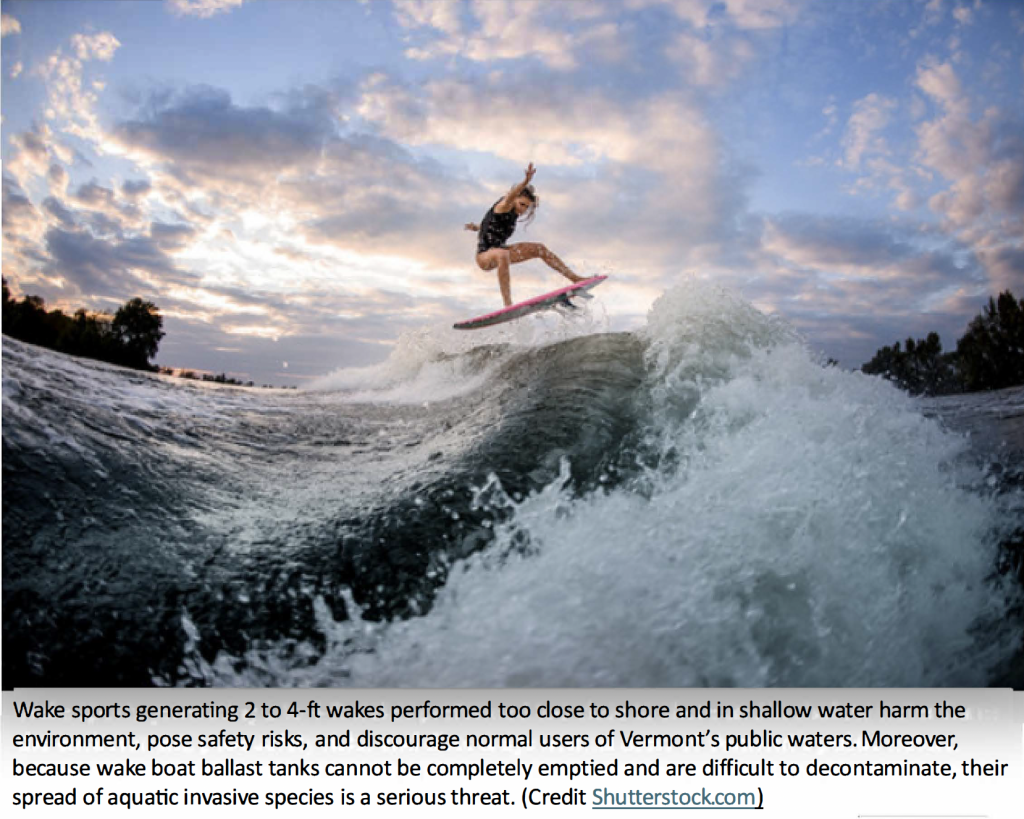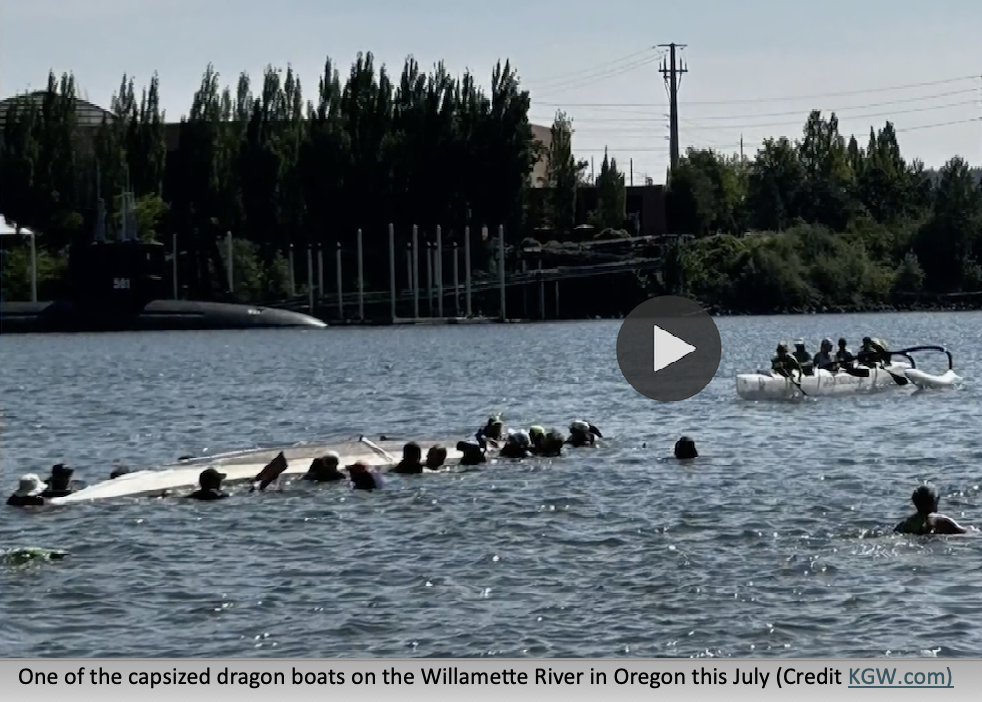Along with this summer’s hotter than normal temperatures nationally, wake boating issues have become hot topics in several states. Proponents for stronger, more effective regulation of wake sports have told our Responsible Wakes for Vermont Lakes (RWVL) group that Vermont’s first in the nation statewide wake sports rule issued by the Agency of Natural Resources/Department of Environmental Conservation (ANR/DEC) has energized their movements to regulate wake boating in their states (see “Vermont Residents …” in Aug 4 Lakes at Stake Wisconsin Newsletter). As indicated below, in several states and local communities there has been evidence of overwhelming public support for effective regulation of wake sports.

Vermont. Our state’s first-ever ANR/DEC “Wakeboat Rule” went into effect on April 15. It did so without the Agency having provided a well-thought-out Home Lake Rule implementation for this summer, and without designated approved, fully functional wake boat decontamination stations. This situation created confusion among the state’s inland lakes and ponds that allow motorized watercraft.
Noteably, of the 30 larger, deeper lakes where wake sports are permitted, seven have petitioned the ANR/DEC to prohibit wake sports on their lakes. These include Little Averill, Great Averill, Caspian, Fairlee, Echo in Charleston, Waterbury, and Shadow. An additional six lake associations are preparing petitions to prohibit wake sports. These include Parker, Willoughby, Sunset, Harveys, Joes, and Carmi. Some of these lakes seek to completely prohibit wake boats on their lakes.
Minnesota. In May, the Minnesota Department of Natural Resources approved the following local ordinance for Caribou Lake in Lutsen Township, Cook County, Minnesota that — unlike Vermont’s ANR/DEC’s wake sport rule— took into consideration safety concerns, requiring a minimum 500-ft operating distance from shore and — for the first time ever — from other watercraft:
“[T]o promote its fullest use and enjoyment by the public in general and the citizens of Cook County in particular, to insure safety for persons and property in connection with the use of said waters … Wake surfing, defined as the untethered use of a surfboard behind a watercraft, is prohibited on Caribou Lake in any area that meets one or more of the following criteria: (a) Any area that is less than 500 feet from the shoreline or another watercraft.(b) Any area in which the water depth is less than 20 feet.”
Oregon. In July on the Willamette River in Portland, there were two reports of incidents within a week of one other in which illegally operated wake boats capsized dragon boats. This was particularly disturbing because the first of these involved a group of handicapped paddlers, some of whom lost their glasses, keys, wallets, shoes, and cell phones when their boat capsized.

Wisconsin. Municipalities in Wisconsin have the authority to enact lake ordinances regulating local boating and water uses. Lakes at Stake Wisconsin, Inc., a nonprofit citizens’ group, estimates that the number of Wisconsin lakes restricting wake boating activities exceeds 230 — up from 10 lakes as one year ago (see “Waupaca Chain …” in Aug 4 Lakes at Stake Wisconsin Newsletter). As an example, the towns of Dayton, Farmington, and Lind moved forward with ordinances in late July to prohibit the creation of artificial wakes on most of the lakes in the Waupaca chain of lakes. The residents of these lakes worked diligently for over a year to get these ordinances passed, overcoming initial municipal opposition by convincing town officials of the support and merits of their proposal with a petition showing 95% local resident support.
As another example of public support, at this spring’s Annual Wisconsin Conservation Congress, survey results of 18,800 people (92% were Wisconsin residents) wake boating questions were presented. Those voting overwhelmingly — by a margin of over 3 to 1— voted in favor of some form of regulation of wake sports to reduce their impacts on safety of lake users as well as the aquatic and shoreline environments. The Wisconsin Lakes’ nonprofit group interpreted these results as follows: “it’s fair to say that support for enhanced wake regulation among active, conservation-minded surface water users in the state is strong.”
………………..
To support Vermont’s individual lake association petitioners and to assist the ANR/DEC in efforts to improve the current Vermont Use of Public Waters Rules for wake boating as detailed in their online working document, “Wakeboating and Wakesports in Vermont,” RWVL asks members of the public observing violations of the wake sports rule to report them to the enforcement authorities listed in this ANR/DEC online document, i.e., the Marine Division of the State Police using the “Submit a Tip” link: https://vsp.vermont.gov/tipsubmit, or to their local game warden. RWVL also strongly encourages similar reporting to the same enforcement authorities when observing situations indicating that the current ANR rule is inadequate for mitigating significant wake sports and wake boat adverse impacts on the environment, personal safety, and/or the enjoyment of others in public recreational areas managed by the DEC.
